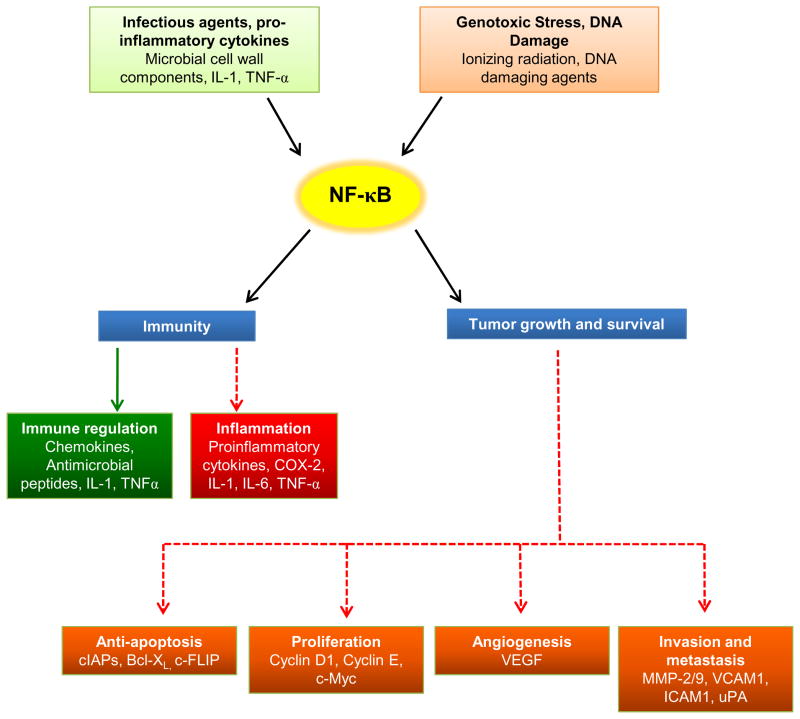Fig. 3.
NF-κB as the central mediator of inflammation, carcinogenesis and tumor radioresistance. NF-κB can be activated by microbial components or other pro-inflammatory cytokines which can positively modulate the host immune response by synthesizing chemokines and antimicrobial peptides or can lead to local inflammation. Similarly, NF-κB can be induced by anticancer therapeutics and genotoxic stress, and this activated NF-κB promotes cell survival, which forms the basis of carcinogenesis. However, the most peculiar feature of NF-κB is its ability to be transiently activated by anticancer therapeutics (such as ionizing radiation), which elicits a plethora of pro-survival signaling in the irradiated tumor cells. Thus, activated NF-κB could be beneficial to the host (indicated by solid green arrow) or be detrimental to the host (favoring tumor growth; pathways indicated by dotted red arrows).

